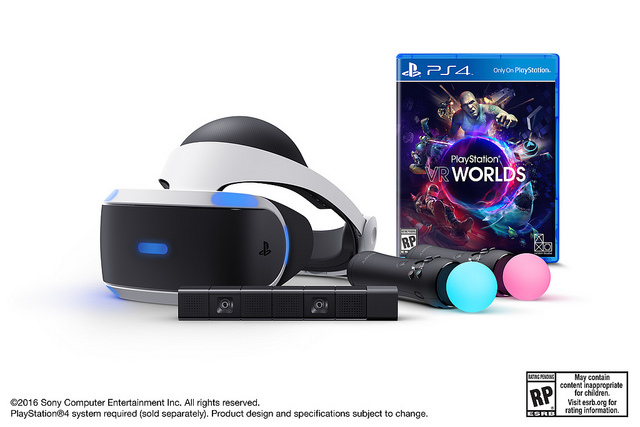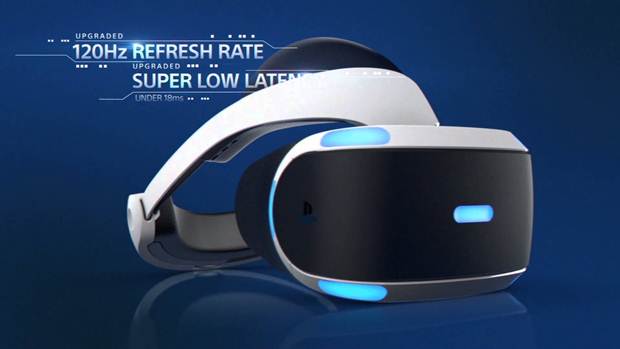
About three months ago, I wrote a pretty long piece about how I wasn’t confident about the future of the PlayStation VR, in spite of all of Sony’s grand promises for the headset. “Sony’s history of dropping support for their side projects and ventures may not indicate the best future for the PlayStation VR,” I said at the time, noting that even though I was convinced that VR was here to stay, and would have a role to play in shaping the future of the medium, it was the PlayStation VR that I couldn’t place my faith in- Sony’s shoddy record with other endeavors, such as the PlayStation Move, PlayStation 3D, PlayStation EyeToy, and the PlayStation Vita seemed to indicate that the company was incapable of supporting a secondary platform in addition to its primary home console.
Identifying previous projects that Sony had billed as the ‘next big thing,’ and as their ‘next major platform,’ but which they had nevertheless dropped support for quickly, and which had gone on to fail, I identified certain patterns that were common- one of them, and the one I want to talk about right now, was the question of marketing. Unless it is a PlayStation home console, Sony simply seem uninterested in actually advertising the damn thing. The PlayStation Vita had a total marketing budget of just $50 million, and we don’t know where even that went, because outside of a forgettable Taco Bell promotion, there were few, if any, ads running for the Vita on TV leading up to its launch. The PS Move had an even smaller $1 million allocated to its marketing!
These numbers back up something who was around for either of those two launches would be able to tell you anyway- the PS Move and the PS Vita had no advertising, no marketing, no presence or public consciousness penetration. Sony didn’t advertise them, and people didn’t know they existed. People didn’t know they existed, and they went on to do poorly, causing Sony to pull the plug on support prematurely.
"The PlayStation VR is two and a half months away from release, but there has been zero marketing of any consequence for it so far."
If we consider the PlayStation VR right now, we see a scary echo- the headset is two and a half months away from release, but there has been zero marketing of any consequence for it so far. No TV spots, no ads in magazines or newspapers, no banners on websites, nothing. To Sony’s credit, there is a promotion they have running with Best Buy, where customers can go to a store near them and try out a PlayStation VR every weekend through to the end of this year- but why would they try out something that they don’t even know exists in the first place?
But wait, I hear the inevitable objections. There are two and a half months left to the PlayStation VR’s release. Aren’t we jumping to conclusions a bit too early here? And maybe so- except I would like to remind people that less than three years ago, leading up to the launch of the PlayStation 4, Sony had started marketing for the console all the way back in June– which was five months before it would actually launch to the market. Even if I were to admit the notion that the PS4 was obviously a more important launch to Sony than the PSVR is, the inescapable conclusion is that for a launch that Sony claims is on par with a ‘new platform launch,’ the PSVR is certainly not getting the kind of marketing support that would back those claims up.
In Sony’s defense, there is one factor that must be considered here- VR is exceptionally hard to market. Some years ago, when they were launching the 3DS, Nintendo noted that the 3DS was very hard to actually market in a conventional manner, because its main appeal – the 3D effect – couldn’t be recreated, and had to be experienced in person. VR is like that, but amplified many times over. VR creates a full virtual world around the user, and changes how the user interacts with the software entirely- there is no way to actually market the concept, short of cheesy storyboard ads in the vein of The Matrix or something. The easiest way to market the PSVR is to get as many people to try it out as possible- and one could argue that with the Best Buy promotion, Sony are in fact doing just that.
"The easiest way to market the PSVR is to get as many people to try it out as possible- and one could argue that with the Best Buy promotion, Sony are in fact doing just that."
There is more to think about, too- the audiences today are very informed, and owing to the pervasiveness of social media and the internet, are more aware of new releases and trends even without targeted marketing. This is easily evident in the fact that, in spite of Sony’s not marketing the PlayStation VR all that well so far, it is apparently doing very well- pre-orders are selling out, and it seems to have met Sony’s internal expectations, whatever they were.
With the headset already selling without much in the way of marketing, why would Sony spend too much time or money on advertisements and commercials? In fact, it is not unreasonable to suppose that Sony’s strategy may be to sell to hardcore enthusiasts and evangelists – the kind of people who don’t need ads to sell them on a product or inform them of its existence – to begin with, and only appeal to the mainstream later on, once the product has had a chance to establish itself in the market a bit.
Given that VR is an all new medium, and one with some stigma attached to it due to some failures in launching it before, this is not even an unreasonable strategy- in fact, it may even be the best way to go about it. Consider, also, that the PlayStation VR’s competition is priced far beyond it- you need to pay $600 for Oculus (plus more money for the controllers), and $800 for the HTC Vive, and you also need an exceptionally powerful desktop PC (a category of electronics that is in decline in the larger market) to run them in the first place. PSVR, with its mass market price, and its reliance on a console that most people already own, is the best bet high end VR has of breaking into the mainstream, and is also the default choice for most people looking to dip their toes into the VR pool, simply because of its cheaper price.
"Sony can afford to start small, and start late, and they will still have apparently sold it beyond their internal projections."
In all of this, is there even any real need to market the PlayStation VR for now? Sony can afford to start small, and start late, and they will still have apparently sold it beyond their internal projections. It’s cheap enough that it will also manage to sell to those in the mainstream audience who want to try out VR, simply by virtue of its price. Of course, a strategy like this is not sustainable- Sony will have to kick off marketing for the PlayStation VR sooner or later, and if they still haven’t a few months down the line, then we’ll probably seeing echoes of their treatment of the Move and Vita. But those concerns come down the line- for now, one can argue that Sony can get away with the bare minimum.
Are Sony marketing the PlayStation VR? Not really, at least not to what I would call an acceptable extent. But, I would argue, the beauty of it all is, they are in a unique position where they might not have to.
Note: The views expressed in this article are those of the author and do not necessarily represent the views of, and should not be attributed to, GamingBolt as an organization.

















